Pagan God Contest
Hosted by [Kuruni]
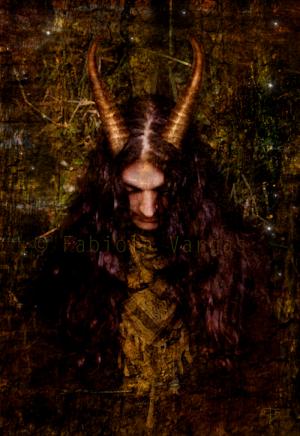
CONTEST CLOSED!
THE WINNERS ARE:
1st Place: A DRAW:
[nehirwen]
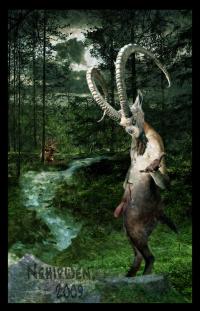
And
[Jitter]
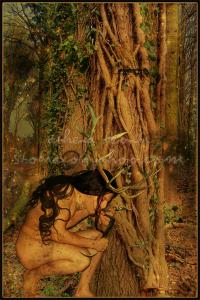
Both have Won this:
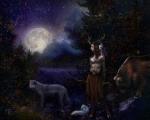
Signed 8x10 print.
Please send me your full Address!
2nd Place:
[Oghirdor]
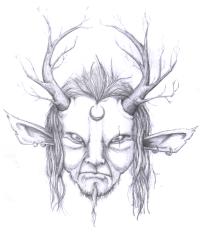
Prize is:
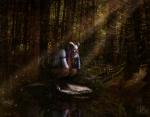
signed 8x10 print.
No need to give me your address, i will give it to you
in a few days.
3rd Place:
[*Blade*]
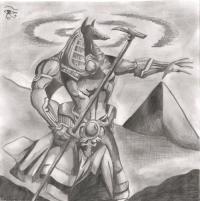
Prize is:
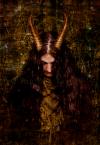
Signed 8x12 print.
Please send me your full Address!
CONGRATULATIONS TO THE WINNERS AND THANK YOU ALL FOR PARTICIPATING,
I WILL MAKE A BADGE FOR ALL THE PARTICIPANTS VERY SOON!
THIS WERE THE RULES:
1. NO STOLEN ART!
Images must be created by Elftowners and posted here by the original artist. Which means, no matter how much you might like a particular image on somebody's house, you are not allowed to add it here. This includes random images from the net too. MAKE YOUR OWN IMAGES, DON'T STEAL THEM AND TRY TO CLAIM THEM AS YOUR OWN PLEASE.
2. QUALITY:
Please put forth YOUR BEST EFFORT and the BEST QUALITYy i.e.
- no drawings on lined notebook paper
- no pictures or bad scannings of your drawings
- drawings doesn't have to be new. That means you may submit a drawing you have made before this contest or one that was submitted to another contest already, no problem.
- DRAWINGS MUST BE WELL SHADED OR COLORED.
3. EACH MEMBER MAY SUBMIT TWO (2) ENTRIES:
For this please add a number, name and entry, for a second entry just add it below the first one
under the same number. Just add A: and B:
4. ALL IMAGES MUST BE UPLOADED TO ELFTOWN!
If you need assistance, please ask.
5. SUBJECT MATTER AND MEDIUM:
The Subject is to illustrate one or two of the Pagan Gods from the list below. Images that depict graphic violence, pornography or other disturbing actions will not be accepted. Only images that fit the theme will be allowed.
All mediums,
Photography, Sketch, writing and animated GIF's, WILL NOT BE ACCEPTED.
WHAT IS ALLOWED?
-Ink
-Full Pencil Work
-Charcoal
-Acrylics
-Tempera
-Oils
-Watercolors
-Color Pencils
-Crayons
-Pastels
-Collage
-Mixed Media
-Photo Manipulation ( Well Manipulated )
-Digital Art ( From Scratch or combined )
-3D
-Sculpture ( Clay, Wood, Resin, Lego! Smashed Potatoes! anything except for the obvious of course XD ) For this a photo is allowed of course.
6. THEME:
Pagan God or Lord ( Folklore, Fantasy, Legends, Stories, Myths FROM THE LIST BELOW)
Images not following the theme will be removed.
7. DEADLINE:
The deadline of this competition is APRIL 1st 2009,
8. WINNERS: There will be first, second and third place, the same person cannot win second or third place, nor can someone win different places with the two images he/she submitted.
9. PRIZE:
1st place:
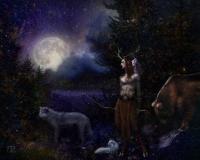
8x10 print, signed.
2nd place:
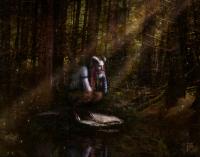
8x10 print, signed
3rd place:
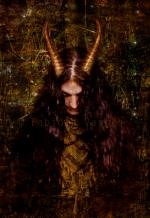
8x10 print,signed.
The Three Winners will be featured in my Website for Two Months
in the page called Contests that will be created for this purpose when the time comes, with a link to each of the Winning Houses.
PICK ONE OR TWO FROM THESE GODS
THE GREEN MAN: God of Forests and Vegetation, in Wicca, the Green Man usually represents the forces of nature and is related or similar to the Horned God, a mix of ancient Pagan Gods such as the Celtic Cernunnos and the Greek Pan.
There are legends of him in which, like Osiris, he is dismembered and reborn; and prophecies connecting him, like the Green Man, with the end of time. His name means the Green One or Verdant One, he is the voice of inspiration to the aspirant and committed artist. He can come as a white light or the gleam on a blade of grass, but more often as an inner mood. The sign of his presence is the ability to work or experience with tireless enthusiasm beyond one's normal capacities. In this there may be a link across cultures, …one reason for the enthusiasm of the medieval sculptors for the Green Man may be that he was the source of inspiration.
Green Man would appear to be pagan, perhaps a fertility figure or a nature spirit, similar to the woodwose, the wild man of the woods.
CERNUNNOS: is a Celtic god whose representation
s were widespread in the ancient Celtic world. As a horned god, Cernunnos is associated with horned male animals, especially stags and the ram-headed snake; this and other attributes associate him with produce and fertility. Related with the sun, the Green Man and the Wild Hunt.
GWYN AP NUDD: In Welsh mythology, Gwyn or Gwynn ap Nudd was the ruler of Annwn (the Underworld). He escorted the souls of the dead there, and led a pack of supernatural hounds.
Gwyn: "white" but with the connotations of "fair," and "blessed" or "holy."
Son of the war god Nudd/Lludd. King of the Fairies, Lord of the Otherworld (identified with Avalon/Glastonbury) or Underworld (identified with Annwfn/Uffern), leader of the Wild Hunt. Also called Gwyn ap Nuad, Winter God, Gwyn ap Nuad is a God of war, death and the hunt and the patron God of fallen warriors. His name means "white son of Darkness" since he is the son of the sun/death God Llud. Gwyn ap Nuad appears in a flowing gray cloak and rides upon a pale wild white horse following the hounds during the midwinter Wild Hunts. In some of the tales, his hounds are pictured as three in number - with one hound red, one black and one white. being the three hounds the three months of winter.
OBERON: Oberon is the king of the fairies in William Shakespeare's A Midsummer Night's Dream who is feuding with his wife Titania, the queen of the fairies. They are fighting over a baby that Oberon wants to raise as his henchman. Titania wants to keep the baby because he is the child of Titania's mortal friend who died, and Titania wants to raise the child for her friend. Because Oberon and Titania are powerful fairies, their arguments affect the weather. He represents the most primal and darkest side of nature, the secrets, the mysteries, the night, hidden treasures, trickery, intelligence, cold. while Titania represents the joy, the light, kindness and pureness of the soul, vanity, laughter, warmth, honesty, young life and wisdom.
PAN: is the Greek god of shepherds and flocks, of mountain wilds, hunting and rustic music: paein means to pasture. He has the hindquarters, legs, and horns of a goat, in the same manner as a faun or satyr. Pan inspired sudden fear in lonely places, was later known for his music, capable of arousing inspiration, sexuality, or panic, depending on his intentions.
HADES: the god of the underworld, was a son of the Titans, Cronus and Rhea. Despite modern connotations of death as "evil", Hades was actually more altruistically inclined in mythology. Hades was often portrayed as passive rather than evil; his role was often maintaining relative balance.
Hades ruled the dead, assisted by others over whom he had complete authority. Hades, god of the dead, was a fearsome figure to those still living; in no hurry to meet him, they were reticent to swear oaths in his name. To many, simply to say the word "Hades" was frightening.
OSIRIS:is the Egyptian god of life, death, and fertility. He was widely worshiped until the forcible suppression of paganism in the Christian era. Osiris was not only the redeemer and merciful judge of the dead in the afterlife, but also the underworld agency that granted all life, including sprouting vegetation and the fertile flooding of the Nile River.
ANUBIS: is the Greek name for a jackal-headed god associated with mummification and the afterlife in Egyptian mythology. In the ancient Egyptian language, Anubis is known as Inpu, (variously spelled Anupu, Ienpw etc.). The oldest known mention of Anubis is in the Old Kingdom pyramid texts, where he is associated with the burial of the king. At this time, Anubis was the most important god of the Dead but he was replaced during the Middle Kingdom by Osiris.
Anubis was usually portrayed as a jackal-headed human, or in fully canine form wearing a ribbon and holding a flail in the crook of its arm. It was strongly associated with cemeteries in ancient Egypt, since it was a scavenger which threatened to uncover human bodies and eat their flesh The distinctive black color of Anubis "did not have to do with the jackal [per se] but with the color of rotting flesh and with the black soil of the Nile valley, symbolizing rebirth.
Anubis is depicted in funerary contexts where he is shown attending to the mummies of the deceased or sitting atop a tomb protecting it. In fact, during embalming, the "head embalmer" wore an Anubis costume. The critical weighing of the heart scene in Book of the Dead also show Anubis performing the measurement that determined the worthiness of the deceased to enter the realm of the dead (the underworld). New Kingdom tomb-seals also depict Anubis atop nine bows that symbolize his domination over the foes of Egypt
Anubis takes various titles in connection with his funerary role, such as He who is upon his mountain, which underscores his importance as a protector of the deceased and their tombs, and the title He who is in the place of embalming, associating him with the process of mummification. Like many ancient Egyptian deities, Anubis assumes different roles in various contexts, and no public procession in Egypt would be conducted without an Anubis to march at the head.
ODIN:The chief divinity of the Norse pantheon, the foremost of the Aesir. Odin is a son of Bor and Bestla. He is called Alfadir, Allfather, for he is indeed father of the gods. With Frigg he is the father of Balder, Hod, and Hermod. He fathered Thor on the goddess Jord; and the giantess Grid became the mother of Vidar.
Odin is a god of war and death, but also the god of poetry and wisdom. He hung for nine days, pierced by his own spear, on the world tree. Here he learned nine powerful songs, and eighteen runes. Odin can make the dead speak to question the wisest amongst them. His hall in Asgard is Valaskjalf ("shelf of the slain") where his throne Hlidskjalf is located. From this throne he observes all that happens in the nine worlds. The tidings are brought to him by his two raven Huginn and Muninn. He also resides in Valhalla, where the slain warriors are taken.
Odin's attributes are the spear Gungnir, which never misses its target, the ring Draupnir, from which every ninth night eight new rings appear, and his eight-footed steed Sleipnir. He is accompanied by the wolves Freki and Geri, to whom he gives his food for he himself consumes nothing but wine. Odin has only one eye, which blazes like the sun. His other eye he traded for a drink from the Well of Wisdom, and gained immense knowledge. On the day of the final battle, Odin will be killed by the wolf Fenrir.
He is also called Othinn, Wodan and Wotan. Some of the aliases he uses to travel icognito among mortals are Vak and Valtam. Wednesday is named after him (Wodan).
THANATOS: In Greek mythology, Thanatos (in Ancient Greek, θάνατος – "Death") was the Daimon personification of Death and Mortality. Usually portrayed as a winged young man, twin brother of Hypnos, god of sleep, ( Morpheus is his chief minister and prevents noises from waking him). In Sparta, the image of Hypnos was always put near that of death.: "And there the children of dark Night have their dwellings, Sleep and Death, awful gods. The glowing Sun never looks upon them with his beams, neither as he goes up into heaven, nor as he comes down from heaven. And the former of them roams peacefully over the earth and the sea's broad back and is kindly to men; but the other has a heart of iron, and his spirit within him is pitiless as bronze: whomsoever of men he has once seized he holds fast: and he is hateful even to the deathless gods.
YAMA: He is the son of Surya (Sun), also known as Yamarāja in India, Yanluowang or simply Yan in China, and Enma Dai-Ō in Japan, is the lord of death, first recorded in the Vedas. Yama belongs to an early stratum of Vedic mythology. In Vedic tradition Yama was considered to have been the first mortal who died and espied the way to the celestial abodes, and in virtue of precedence he became the ruler of the departed. Yama's name can be interpreted to mean "twin", and in some myths he is paired with a twin sister Yamī.
AH PUCH: In Maya mythology, Ah Puch was the God of death and King of Metnal, the underworld. He was depicted as a skeleton or corpse adorned with bells, sometimes the head of an owl; even today, some Mexicans and Central Americans believe that an owl's screeches signify imminent death, as the following saying, indicates:
(When the great owl sings, the Indian dies)
DIONYSUS: the Greek god of wine, known as Bacchus to Romans, presided over communication between the living and the dead. Dionysus is strongly associated with the satyrs, centaurs, and the sileni.
VELES: Ancient Slavs viewed their world as a huge tree, with the treetop and branches representing the heavenly abode of gods and the world of mortals, whilst the roots represented the underworld. And while Perun, seen as a hawk or eagle sitting on a tallest branch of tree, was believed to be ruler of heaven and living world, Veles, seen as a huge serpent coiling around the roots, was ruling the world of dead.
SUCELLUS: or Sucellos was the god of agriculture, forests and alcoholic drinks of the Gauls, being the alcoholic toxicity related with sleep and sleep with death.
POREWIT: (also spelled Borevit, Borewit or Prove) was the god of the woods in the Slavic mythology. He is akin to the Greek Pan and the Roman Faunus and Silvanus.
He was represented as a bearded man or in the form of a he-goat, usually provided with deer horns and big genitalia, symbols of fertility and nature. He took care of the voyagers who went lost in the woods and punished the ones who destroyed trees or maltreated animals. Borevit was capable of modify his height to adapt it to the surrounding landscape: he was short next to a mushroom, high and imposing next to a tree.
TRIGLAV: is depicted as a three-headed man sometimes with bands of (gold) blindfolds over his eyes, or a man with three goat heads. Several temples dedicated to Triglav existed near Szczecin, Poland. During the period of Christianization, these temples and statues of Triglav were completely destroyed. Triglav's heads represent sky, earth and the Underworld. Some priests said that Triglav has three heads because he rules all three kingdoms (sky, earth and hell) and has a binding over his eyes so he could not see people's sins. His eyes are said to possess great power (that's why all eyes on his statues are covered).
MORS: In Roman mythology, Mors is the personification of death and equivalent to the Greek Thanatos. He is the son of the goddess of night, Nox, and is the brother of the personification of sleep, Somnus.
PLUTO: Roman God, was originally not the god of the underworld. Pluto is cognate with the Greek word "Ploutos" (wealth, cf. plutocracy), and, under the original name Plutus, was considered by the Romans as the giver of gold, silver, and other subterranean substances. Because these "gifts" were mined, Pluto became recognized as the god of the physical underworld, which in turn helped him become recognized as the god of the spiritual underworld and thus death.
MOLOCH: Like some other gods and demons found in the Bible, Moloch appears as part of medieval demonology, as a Prince of Hell. This Moloch finds particular pleasure in making mothers weep; for he specialises in stealing their children. According to some 16th century demonologists Moloch's power is stronger in October ( Samhain, or Wild Hunt ). It is likely that the motif of stealing children was inspired by the traditional understanding that babies were sacrificed to Moloch.
It is interesting to see how this attitude where also attributed to elves and goblins and some other forest spirits by the Christians in medieval era.
source: Wikipedia and several texts of many Magic books i own. ( too many to make a list here)
GOOD LUCK TO EVERYONE and please BE RESPECTFUL WITH EACH OTHER!
Go to Pagan God Contest Entries
 Stumble!
Stumble!







 8x10 print, signed.
8x10 print, signed. 8x10 print, signed
8x10 print, signed  8x10 print,signed.
8x10 print,signed.